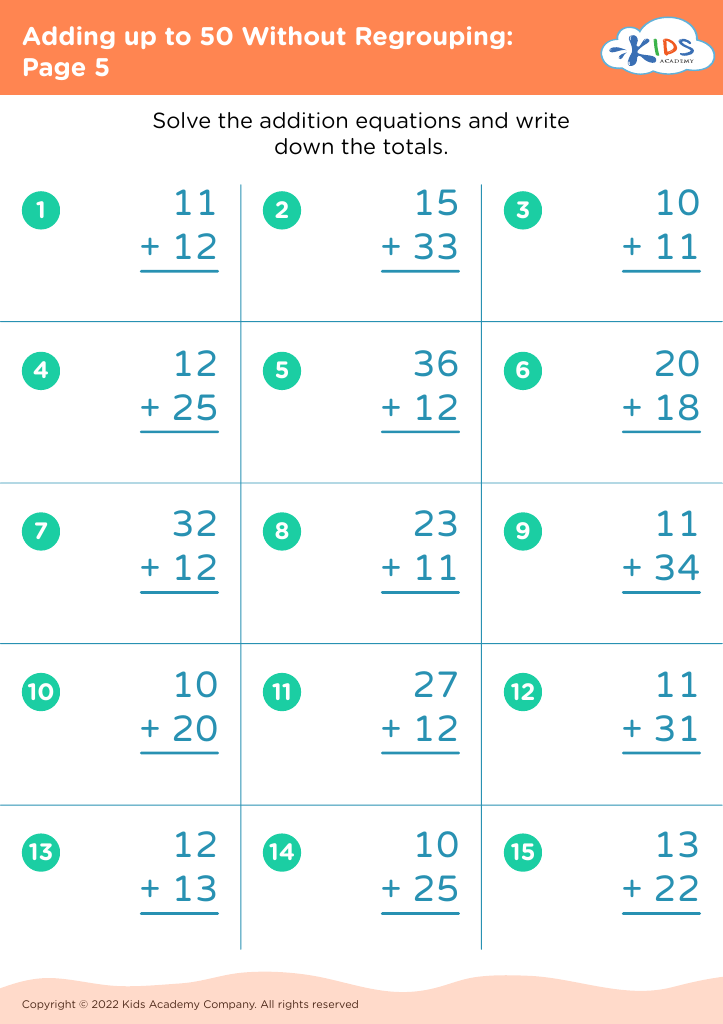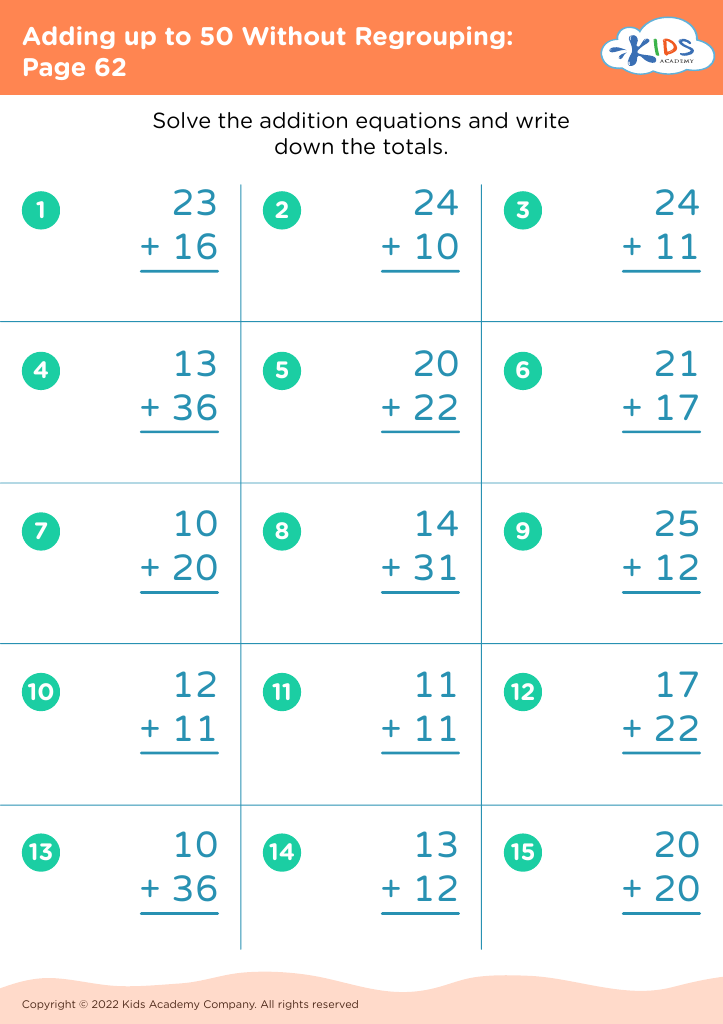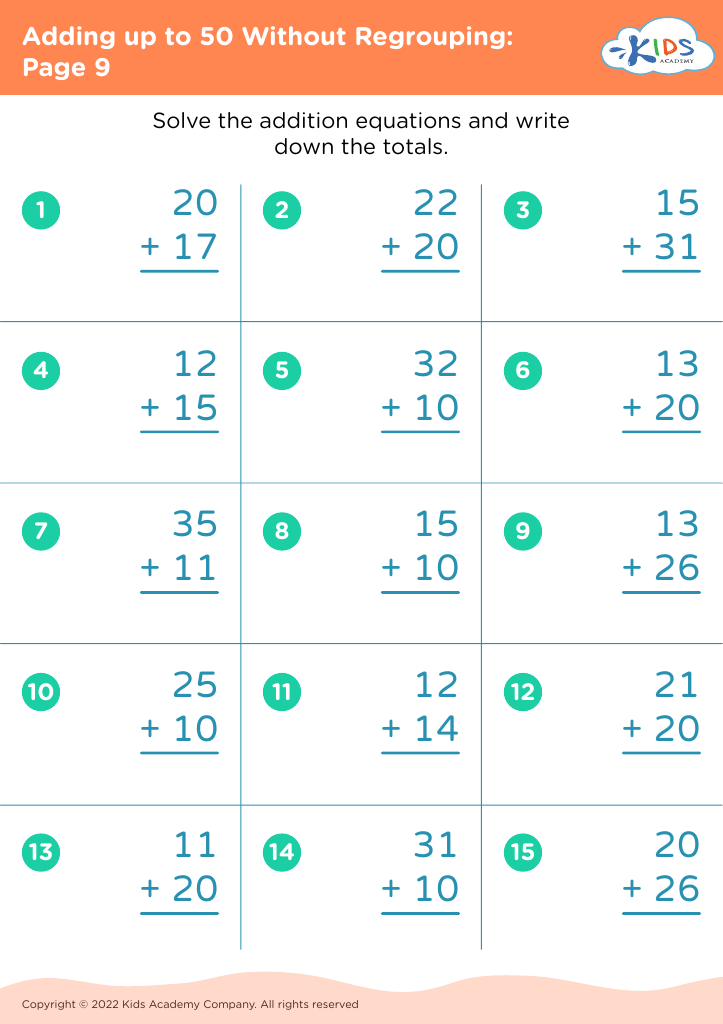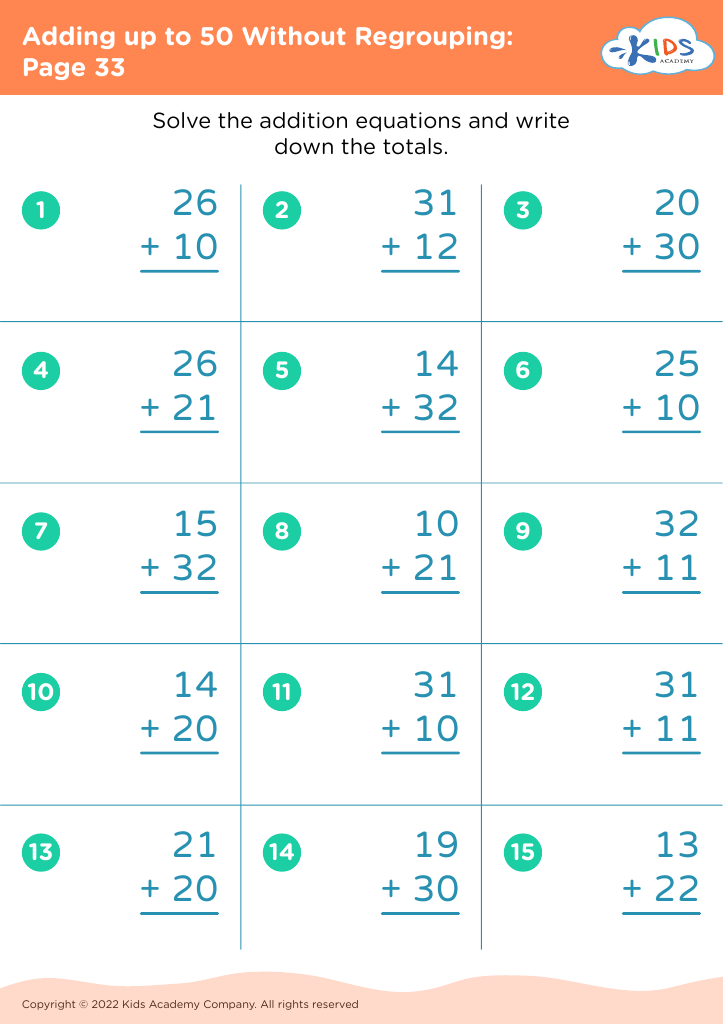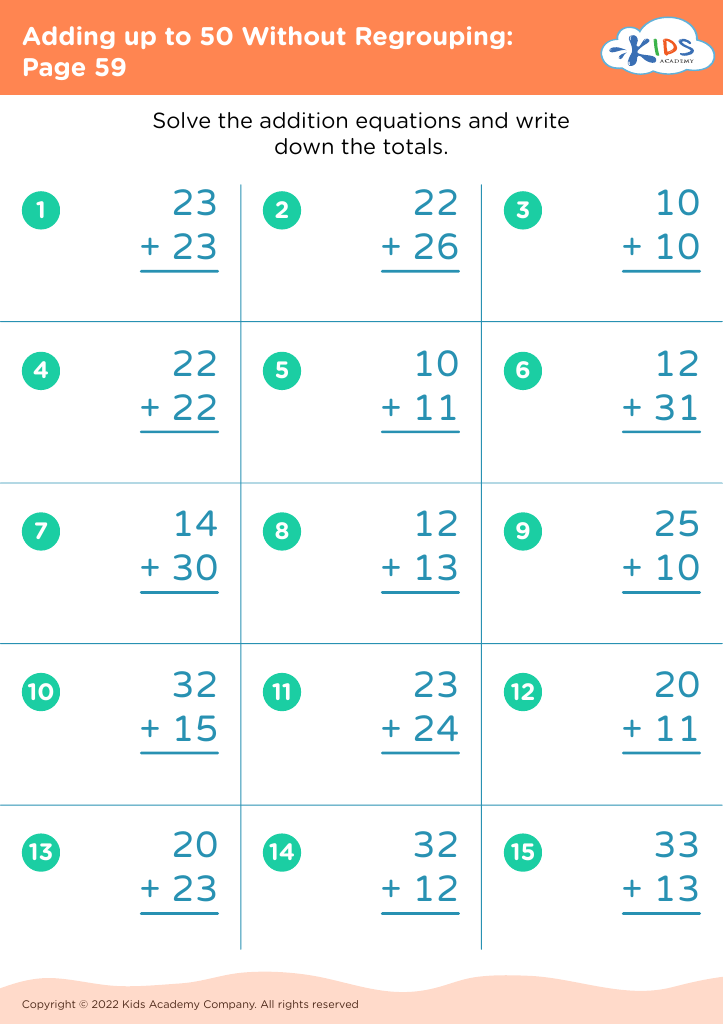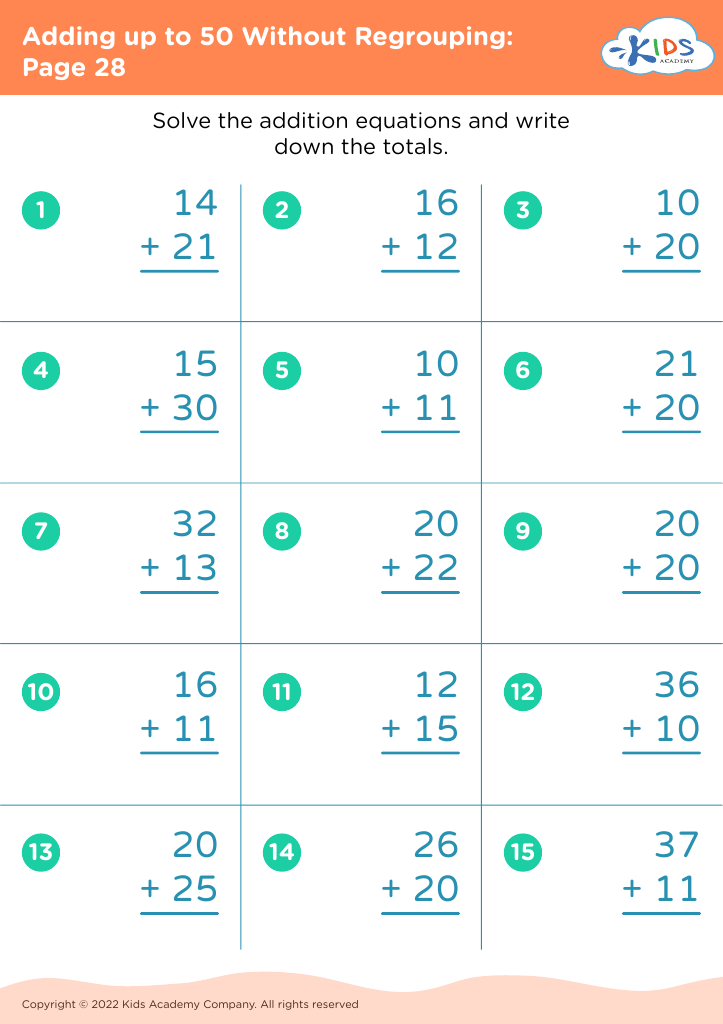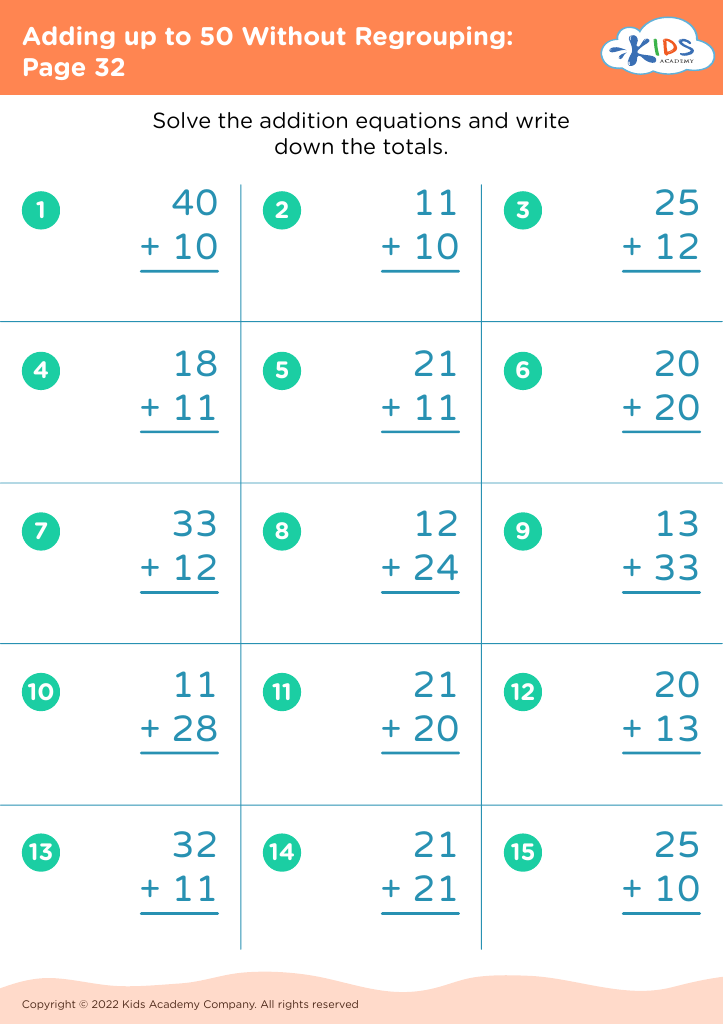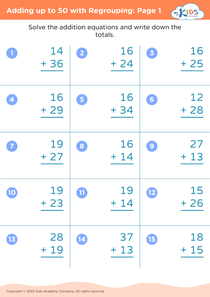Number Recognition Adding up to 50 Without Regrouping Worksheets for Ages 4-7
15 filtered results
-
From - To
Enhance your child's math skills with our "Number Recognition Adding up to 50 Without Regrouping Worksheets for Ages 4-7". Designed for early learners, these engaging worksheets help kids grasp basic addition concepts, while improving number recognition up to 50. Each activity offers a fun, hands-on approach to learning, ensuring that children build confidence and accuracy in their math abilities. Ideal for classroom use or home practice, our worksheets support a solid foundation in arithmetic, preparing young learners for more advanced math challenges. Download today and watch your child's number skills thrive with Kids Academy!
Number recognition and basic addition are fundamental skills that form the cornerstone of a child's math education. Parents and teachers should prioritize helping children ages 4-7 master these skills, particularly adding up to 50 without regrouping, for several compelling reasons.
Firstly, early numeracy skills are predictive of later academic success. Understanding number recognition and basic addition builds a child's confidence and fosters a positive attitude towards math. Early success with these simple calculations lays a foundation that makes more complex mathematical concepts, such as regrouping and subtraction, easier to grasp in later grades.
Secondly, number recognition and simple addition help develop essential cognitive skills like memory, attention to detail, and logical thinking. Learning to identify and manipulate numbers without skipping steps exercises the brain and enhances problem-solving abilities.
Additionally, these skills have practical everyday applications. From recognizing the number of items in a grocery cart to understanding dates and times, the ability to quickly and accurately perform basic addition helps children navigate their world more effectively. For example, knowing that combining 12 apples with 15 oranges equals 27 fruits empowers them to better understand their surroundings.
Investing time and effort into ensuring children master number recognition and addition up to 50 without regrouping equips them with foundational skills essential for both academic and real-life success.




